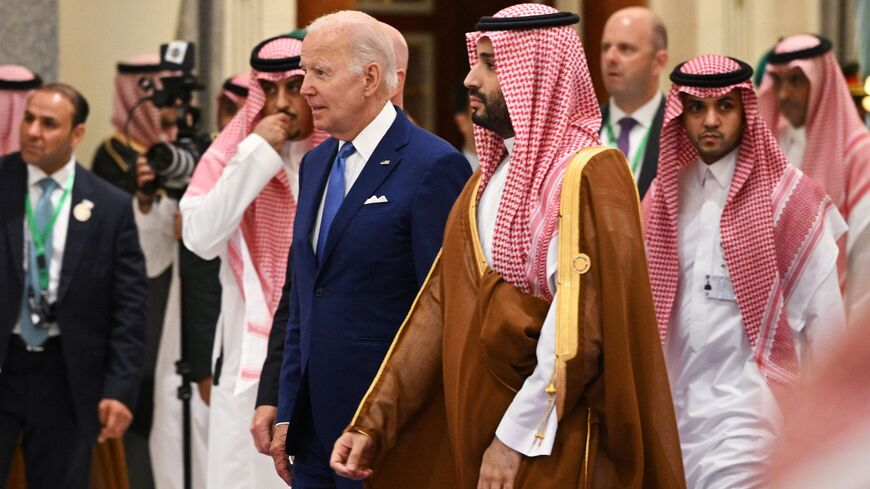
The White House has nodded to calls among Democrats in Congress for a reappraisal of Washington’s seven decades of support to the kingdom.
The White House will “reevaluate” the United States’ relationship with Saudi Arabia after OPEC+ announced cuts to oil production last week in line with Russia’s strategic interests and ahead of key midterm elections in the United States.
“I think the president’s been very clear that this is a relationship that we need to continue to reevaluate, that we need to be willing to revisit,” National Security Council spokesperson John Kirby told CNN on Tuesday. “And certainly in light of the OPEC decision, I think that’s where he is.”
Why it matters: The White House’s statement follows a wave of bitter criticism from Democrats in Congress calling into question broad US support for Saudi Arabia due its role in the oil cartel’s decision to slash production by 2 million barrels per day.
The move by OPEC and its allies has already begun to raise global oil prices and comes as Europe stands on the threshold of a winter energy crisis. Russian hydrocarbons to the continent have all but halted as a result of Moscow’s invasion of Ukraine.
Bob Menendez (D-NJ), chair of the Senate’s Foreign Relations Committee, called late on Monday for an unprecedented halt to “all aspects of cooperation with Saudi Arabia, including any arms sales and security cooperation beyond what is absolutely necessary to defend US personnel and interests.”
Menendez vowed to block “any cooperation with Riyadh until the kingdom reassesses its position with respect to the war in Ukraine.”
Last week the Biden administration accused the oil cartel of aligning with Russia and said all options were on the table following the decision, though the State Department’s deputy spokesperson Vedant Patel later said US military support for Saudi Arabia would remain unaffected.
The IMF has projected 10% growth in the Saudi economy this year — in large part due to the rise in oil prices — as Crown Prince Mohammed bin Salman seeks to chart a new future for the kingdom that is less vulnerable to Washington’s influence.
The rise in prices also benefits the Russian government financially as the United States and its Western allies have sought to isolate Moscow over its invasion and attempted annexation of Ukraine.
In recent months, US officials have privately urged Saudi counterparts and other OPEC members not to cut production, with little to show for their efforts.
President Joe Biden risked domestic embarrassment by meeting with the crown prince in Saudi Arabia in July in a bid to patch up relations.
Close ties between the two countries date back to the 1940s, but have hit an historic low since Biden ended US support for Riyadh’s war effort in Yemen and called for the kingdom to be treated as a “pariah” over the crown prince’s alleged role in the murder and dismemberment of Washington Post columnist Jamal Khashoggi.
